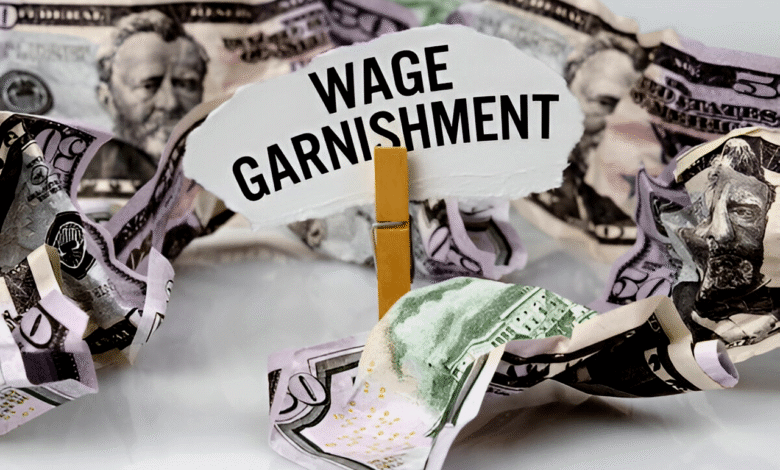How to Stop Wage Garnishment in Florida Legal Options Explained
Stop wage garnishment in Florida with legal options. Learn about exemptions bankruptcy and creditor negotiations to protect your income today.

Wage garnishment can be a frightening and overwhelming experience, especially when you rely on every dollar of your paycheck to cover living expenses. If your wages are being garnished in Florida, it’s important to know that you have legal rights and options to stop or reduce the garnishment. Florida law provides strong protections for debtors, including exemptions for certain types of income and legal strategies to challenge garnishment orders. Whether you’re dealing with credit card debt, medical bills, or other financial obligations, understanding how to fight wage garnishment can help you regain control of your finances. This guide will explore the most effective legal methods to stop wage garnishment in Florida.
While wage garnishment can feel like a financial trap, taking swift action can help you minimize its impact. The key is knowing which legal avenues are available and how to use them effectively. By exploring options such as head-of-household exemptions, debt settlement, or bankruptcy, you may be able to halt garnishment and protect your income. This article will provide a detailed breakdown of Florida’s garnishment laws, the steps creditors must follow, and the best strategies to stop wage garnishment before it causes further financial strain.
How to Stop Wage Garnishment in Florida Legal Options Explained
Legal Process Requirements
In Florida, creditors must follow a specific legal process before garnishing wages. They must first file a lawsuit against you and obtain a court judgment proving the debt is valid. After winning the judgment, they must then request a separate writ of garnishment from the court. Only after this writ is issued will your employer become involved, as they are legally required to comply with the official garnishment order. Throughout this process, you’ll receive multiple court notices at each stage, providing critical opportunities to respond and potentially stop or reduce the garnishment before it begins.
Florida’s Unique Debtor Protections
Florida offers some of the strongest wage garnishment protections in the nation. State law limits creditors to taking the lesser of either 25% of your take-home pay or any amount exceeding. Certain income sources like Social Security, disability, and retirement benefits enjoy complete protection from garnishment. Florida’s unique head-of-household exemption can shield all wages for primary breadwinners supporting dependents. However, these generous protections don’t apply to court-ordered child support or alimony payments, which follow separate.
Legal Options to Stop Wage Garnishment in Florida
Claiming Head-of-Household Exemption
One of the most powerful protections against wage garnishment in Florida is the head-of-household exemption. If you provide more than half of the financial support for a child or another dependent, you may qualify to have your wages completely exempt from garnishment. To claim this exemption, you must file a “Claim of Exemption and Request for Hearing” form with the court within 20 days of receiving the garnishment notice. You will need to provide proof of your financial responsibilities, such as birth certificates, tax returns, or affidavits. If the court approves your claim, the garnishment will be stopped, and any withheld wages may be returned to you.
Filing for Bankruptcy
Immediate Relief Through Automatic Stay
When you file for either Chapter 7 or Chapter 13 bankruptcy in Florida, an automatic stay goes into immediate effect upon filing. This powerful legal protection acts like a pause button on all debt collection activities it stops wage garnishments dead in their tracks, halts creditor harassment, and freezes any pending lawsuits related to your debts. Your employer is legally required to cease wage withholding as soon as they’re notified of your bankruptcy filing. The automatic stay remains active throughout your entire bankruptcy case, giving you breathing room while the court processes your petition.
Two Bankruptcy Options with Different Approaches
Bankruptcy in Florida offers two distinct paths for stopping wage garnishment: Chapter 7 provides relatively quick (3-6 month) elimination of qualifying unsecured debts like credit cards and medical bills, while Chapter 13 establishes a 3–5-year repayment plan that protects your wages while you pay back a portion of what you owe. Both options immediately halt garnishments but remain on your credit report for years and neither can discharge certain obligations like child support, alimony or recent tax debts.
Negotiating a Settlement with the Creditor
Many creditors would rather accept a partial payment than risk getting nothing if you file for bankruptcy. If you can offer a lump-sum settlement (typically 30%-60% of the debt) or agree to a modified payment plan, the creditor may voluntarily withdraw the garnishment. To negotiate successfully Contact the creditor or their attorney directly. Offer a realistic payment amount you can afford. Get any agreement in writing before sending money. Request that the creditor file a release of garnishment with the court.
Challenging the Garnishment in Court
If you believe the garnishment is unjust or incorrect, you can challenge it in court. Common grounds for contesting a garnishment include Incorrect debt amount the creditor may be seeking more than you owe. Identity theft or mistaken debtor If the debt isn’t yours, you can dispute it. Expired judgment In Florida, judgments are valid for 20 years, but creditors must renew them. Improper service If you were never properly notified of the lawsuit, the judgment may be void. To challenge a garnishment, you must file a motion with the court and request a hearing. An attorney can help strengthen your case.
Protecting Exempt Income Sources
Several types of income enjoy complete protection from wage garnishment under Florida and federal laws. These protected funds include Social Security benefits, SSDI disability payments, veterans’ benefits, most retirement accounts (such as pensions and 401(k)s), and workers’ compensation. If creditors mistakenly garnish a bank account containing these exempt funds, you can file a motion with the court to dissolve the garnishment and recover your money. Florida law provides strong safeguards to ensure these essential income sources remain untouched by debt collectors.
Read More: The Impact of Automation on Labor: Challenges and Opportunities Ahead
Conclusion
Facing wage garnishment in Florida can feel overwhelming, but understanding your legal rights is the first step toward financial recovery. Whether through claiming head-of-household exemptions, negotiating with creditors, filing for bankruptcy, or challenging improper garnishments, multiple avenues exist to stop wage garnishment in Florida and protect your hard-earned income. Taking prompt action is crucial, as delays may result in prolonged financial strain. By exploring these options and seeking professional legal guidance when needed, you can regain control of your finances and work toward a more stable future.
Remember, you don’t have to navigate this challenging situation alone. Florida’s debtor protections provide substantial safeguards, but successfully stopping wage garnishment often requires strategic planning and timely responses to legal notices. If you’re struggling with wage garnishment, consulting with a knowledgeable attorney can help you determine the most effective approach for your specific circumstances. With the right strategy, you can stop wage garnishment in Florida, safeguard your income, and begin rebuilding your financial security.
FAQs
Can my employer fire me for wage garnishment in Florida?
No, Florida law prohibits employers from firing an employee for a single wage garnishment, but multiple garnishments may not be protected.
How much of my paycheck can be garnished in Florida?
For most debts, creditors can take up to 25% of disposable earnings or the amount exceeding 30 times the federal minimum wage, whichever is less.
Are Social Security benefits exempt from garnishment?
Yes, federal law protects Social Security, disability, and veterans’ benefits from most garnishments, except for child support, alimony, or federal taxes.
How long does a wage garnishment last in Florida?
Garnishment continues until the debt is paid, the judgment expires (after 20 years), or a court orders it to stop.
Can I stop garnishment by paying the debt in full?
Yes, paying the full debt (including court fees) will terminate the garnishment. Notify the court and creditor once the debt is satisfied.











